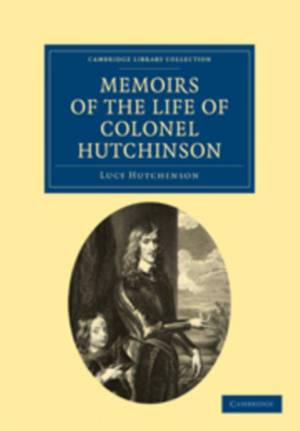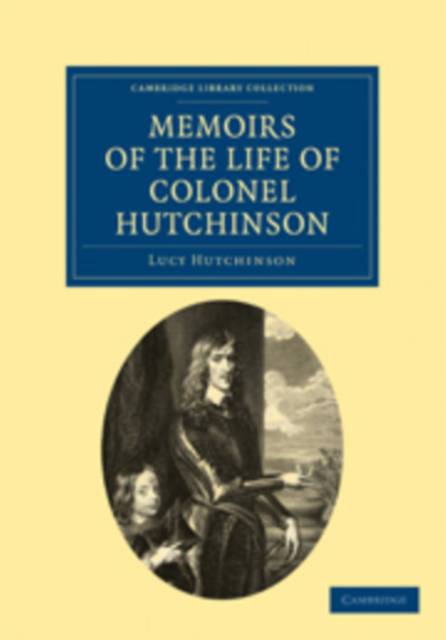
- Afhalen na 1 uur in een winkel met voorraad
- Gratis thuislevering in België vanaf € 30
- Ruim aanbod met 7 miljoen producten
- Afhalen na 1 uur in een winkel met voorraad
- Gratis thuislevering in België vanaf € 30
- Ruim aanbod met 7 miljoen producten
Zoeken
Omschrijving
These Memoirs, first published in 1806, show the determination of Lucy Hutchinson (1620-1681) to justify the stance of her husband Colonel John Hutchinson. In 1649 he had signed the death warrant of Charles I and went on to serve on the Council of State, but, after becoming disillusioned with Cromwell, was arrested and died in prison. Hutchinson turned her journal of the war years into a memoir, portraying her husband as a gentleman who stood by his convictions and whose allegiance to the Puritan cause was noble. The work is a significant document for the social history of the English Civil War period. It shows the author as a highly educated and accomplished woman who wrote poetry and religious works as well as translating Latin at a time when most women remained in the private sphere. For more information on this author, see http: //orlando.cambridge.org/public/svPeople?person_id=hutclu
Specificaties
Betrokkenen
- Auteur(s):
- Uitgeverij:
Inhoud
- Aantal bladzijden:
- 506
- Taal:
- Engels
- Reeks:
Eigenschappen
- Productcode (EAN):
- 9781108019095
- Verschijningsdatum:
- 21/10/2010
- Uitvoering:
- Paperback
- Formaat:
- Trade paperback (VS)
- Afmetingen:
- 170 mm x 244 mm
- Gewicht:
- 798 g

Alleen bij Standaard Boekhandel
+ 199 punten op je klantenkaart van Standaard Boekhandel
Beoordelingen
We publiceren alleen reviews die voldoen aan de voorwaarden voor reviews. Bekijk onze voorwaarden voor reviews.











